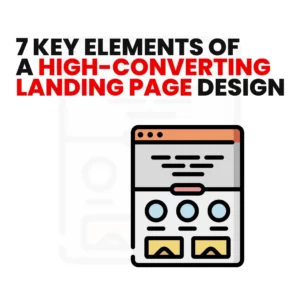Website speed and performance dramatically impact your internet experience, whether you’re a business owner or content creator. You’re part of a thriving online community in Nigeria that uses websites for information, entertainment, and business. This article will explain the importance of website speed and performance optimization in your internet experience.
How website speed affects user experience
Across the internet, where information, entertainment, and services are just a click away, website speed is crucial to your digital experience. If you’ve ever endured a slow website or clicked away, you know how important website performance is to user experience.
1. Loading time and user abandonment
Imagine this: Looking for a neighbourhood eatery to quench your hunger. Websites take forever to load. What do you do? You usually click back and choose another restaurant from the search results. You have company. If a webpage takes more than a few seconds to load, 40% of consumers will leave, according to research. This abrupt withdrawal bothers you and may cost businesses customers and income.
2. Conversion rates and revenue
Website speed can make or destroy your Nigerian internet business. Imagine running an online store selling locally manufactured goods. Your site loads quickly for a possible customer. They can browse, add to cart, and buy stuff effortlessly. However, a slow website may cause customers to quit their cart and look elsewhere. Studies show that a one-second page load delay reduces conversions by 7%. Website speed affects revenue in a competitive online market where every sale counts.
3. Mobile responsiveness and user satisfaction
Many of your internet interactions in Nigeria are on smartphones. If your website is slow and not mobile-friendly, you risk losing a lot of visitors. Mobile page load times can hurt user engagement and retention. A mobile-friendly, fast-loading website improves user happiness and encourages them to remain, explore, and engage with your content or services.

Read also: How to Customize User Experience to Individuals
4 reasons website speed matters
You probably don’t have time to wait for a website to load when you’re online, in Nigeria or elsewhere. The speed at which a website opens before you can access its content affects your digital experience beyond convenience. Here are five strong reasons to care about website speed:
1. Instant gratification
You’re used to receiving what you want instantly on the internet. You expect a website to load quickly when you click on it. Slow-loading websites can try your patience and make you leave. A fast-loading website meets your need for instant gratification by rapidly providing the information, products, and services you need.
2. Bounce rate reduction
Website proprietors in Nigeria and elsewhere want to keep you interested. Websites with high bounce rates can fail when users leave rapidly without browsing. High bounce rates sometimes result from slow-loading websites. Slow-loading websites make you more likely to go and look elsewhere. However, a speedy website encourages you to remain, explore, and engage, lowering bounce rates and rewarding website owners.
3. Improved ranking and discoverability
Search engines like Google rank websites on user experience. Fast-loading websites improve user experience, they know. Google uses website speed as a ranking indication; thus, quicker websites rank higher. Faster-loading websites rank higher in search results, making finding helpful content and businesses easier.
4. Increase in conversion rates
Nigerian business owners should consider how website speed affects profits. Customers may not complete transactions on slow-loading e-commerce sites. Studies reveal that even a one-second page load delay lowers conversion rates. A quick, responsive website improves user experience and increases conversions and revenue.
Website speed and SEO
You want relevant, fast results when searching for answers, products, or services in Nigeria. SEO (Search Engine Optimisation) and website speed are interconnected, affecting you in ways you may not realize.
Google’s Page experience update and core web vitals
Google, the most popular search engine, strives to improve user experience. Google introduced the Page Experience Update to help users like you locate useful and fast content. This update examines a website’s Core Web Vitals—speed, interactivity, and visual stability. Google ranks websites that load quickly and offer a good user experience higher in search results. Searching for information or local companies in Nigeria is more likely to yield fast-loading web pages.
Page speed as a ranking factor
Imagine beginning a business in Nigeria with a great website to promote your products or services. When people search for business-related keywords, you want your website to rank first. Website speed matters here. Page speed affects Google rankings. Thus, if your website loads slowly, it may rank lower in search results, making it harder for clients to find you. In contrast, a fast-loading website can increase organic traffic and visibility.
Relationship between bounce rate and SEO
Bounce rate—the percentage of website visitors who leave after viewing one page—is closely related to website speed. Users are likelier to bounce if your website takes too long to load, telling search engines your content may not be valuable. High bounce rates can hurt SEO and lower rankings. A quicker website minimizes bounce rates, showing search engines that users value your information and are more likely to explore.
Importance of mobile-friendliness
Smartphones dominate Nigeria, making mobile search more critical. Google’s mobile-first indexing ranks and indexes your website on mobile devices. With mobile optimization and performance, your website may rank higher for desktop and mobile searches. Maintaining a robust online presence requires a mobile-friendly and quick website.
4 factors affecting website speed
From swiftly accessing information to making online purchases, website performance can drastically affect your online experience. But why do speeds vary? Explore website speed elements and how they impact your digital trip.
1. Technical factors
- Website server performance is like its engine. Server processing power, capacity, and location affect loading times. Websites hosted on slow or remote servers load slowly. Websites hosted on powerful servers are faster.
- Website speed is affected by code efficiency. Like a well-tuned vehicle engine, optimized code runs smoothly. Bloated or poorly designed code slows website performance. Inefficient programming can slow site loading and cause issues.
2. Content optimization
- High-resolution images and videos are beautiful, but they use a lot of bandwidth and impede page loading. A website with plenty of media files will load slower. Media compression and optimization are crucial for website speed.
- Websites employ scripts for analytics, social network integration, and e-commerce. While these scripts improve user experience, numerous or poorly optimized ones can prolong load times. Many scripts or third-party integrations can hinder website speed.
3. Browser-related issues
- Browsers save website elements to load them faster. Unoptimized caching settings may slow loading speeds when viewing a website for the first time. Clearing your browser cache helps, but websites should manage caching.
- Rendering turns code into a visual page. A website with a complicated design or non-standard coding may take longer to render. This can delay page display and interaction.
4. Third-party integrations
Many websites incorporate widgets, plugins, or embedded third-party content like social media feeds or chatbots. These additions improve functionality but increase HTTP requests and dependencies, slowing loading times.
Read also: 7 Tips for Designing an E-commerce Website
5 strategies for website speed and performance optimization
After learning about website speed elements and how they affect your Nigerian online experience, it’s time to learn how to optimize website performance. These tactics will assist website owners and users in maximizing their online interactions. These tactics will speed up your online experience and those of others who use websites for information, services, and enjoyment. In the following sections, real-world case studies will highlight how website speed optimization can provide significant results.
1. Optimize images
- Compress photos: High-resolution photos slow down websites. Compress photographs before uploading to reduce file size and keep quality. Several online tools can aid you with this.
- Use modern image formats: WebP offers higher compression and quality than JPEG or PNG.
- Implement lazy loading: Lazy loading reduces page load times by delaying picture loading. This works well for websites with extensive image galleries or long scrolling pages.
2. Minify CSS/JS files
- Remove unused code: Unuseful code can build up in your website’s CSS and JavaScript files. Review and eliminate extraneous lines to improve site speed.
- Minify code: Minification removes spaces, line breaks, and extraneous characters from code files. This decreases file size and speeds loading.
3. Leverage Content Delivery Networks (CDNs)
CDNs spread your website’s content over numerous servers in different locations, allowing Nigerian and international users to view it from a nearby server. This minimizes latency and speeds loading.
4. Use caching systems
- Browser caching: Tell browsers to cache static items like pictures, stylesheets, and scripts. Returning visitors can load these elements faster from the cache.
- Server-side caching: Create and store static web pages with server-side caching. When a user requests a page, the server serves the cached version, lowering server load and accelerating page delivery.
5. Implement mobile-optimized responsive web design
Nigerians use mobile devices, so make sure your website is responsive and optimized for different screen sizes. Mobile optimization is vital for SEO due to Google’s mobile-first indexing.
Conclusion
Small business owners, entrepreneurs, and individuals must improve their internet visibility. Website speed and performance are essential for this to happen. Optimize your website for internet users who want fast, easy, and fun interactions.
Don’t let slow-loading websites dissuade customers from using your information or products. As a web designer, I can help you accomplish this. My skills may help you build a new website, redesign an existing one, or optimize performance for fast loading times.



